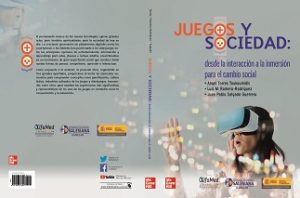Juegos y sociedad
Desde la interacción a la inmersión para el cambio social
El permanente avance de las nuevas tecnologías supone grandes retos, pero también oportunidades para la sociedad de hoy en día. La creciente generación de plataformas digitales corno los smartphones o las tabletas han posicionado a los videojuegos entre las principales opciones de entretenimiento. información y aprendizaje para niños, jóvenes e incluso adultos, convirtiéndose en un mecanismo de gran importancia social que conduce hacia nuevas formas de pensar. comportarse. aprender e interactuar. Como respuesta a lo anterior. la presente obra, organizada en tres grandes apartados, proporciona al lector los elementos necesarios para comprender conceptos como gamificación, cultura lúdica, industrias culturales de los juegos y videojuegos transmedia, entre otros. para analizar las experiencias más significativas y representativas de los usos de los juegos en contextos corno la comunicación y la educación.
Torres-Toukoumidis, A., & Romero-Rodríguez, L.M. (Eds.) (2019). Juegos y sociedad: Desde la interacción a la inmersión para el cambio social. McGraw Hill. https://www.romero-rodriguez.com/download/2275/


